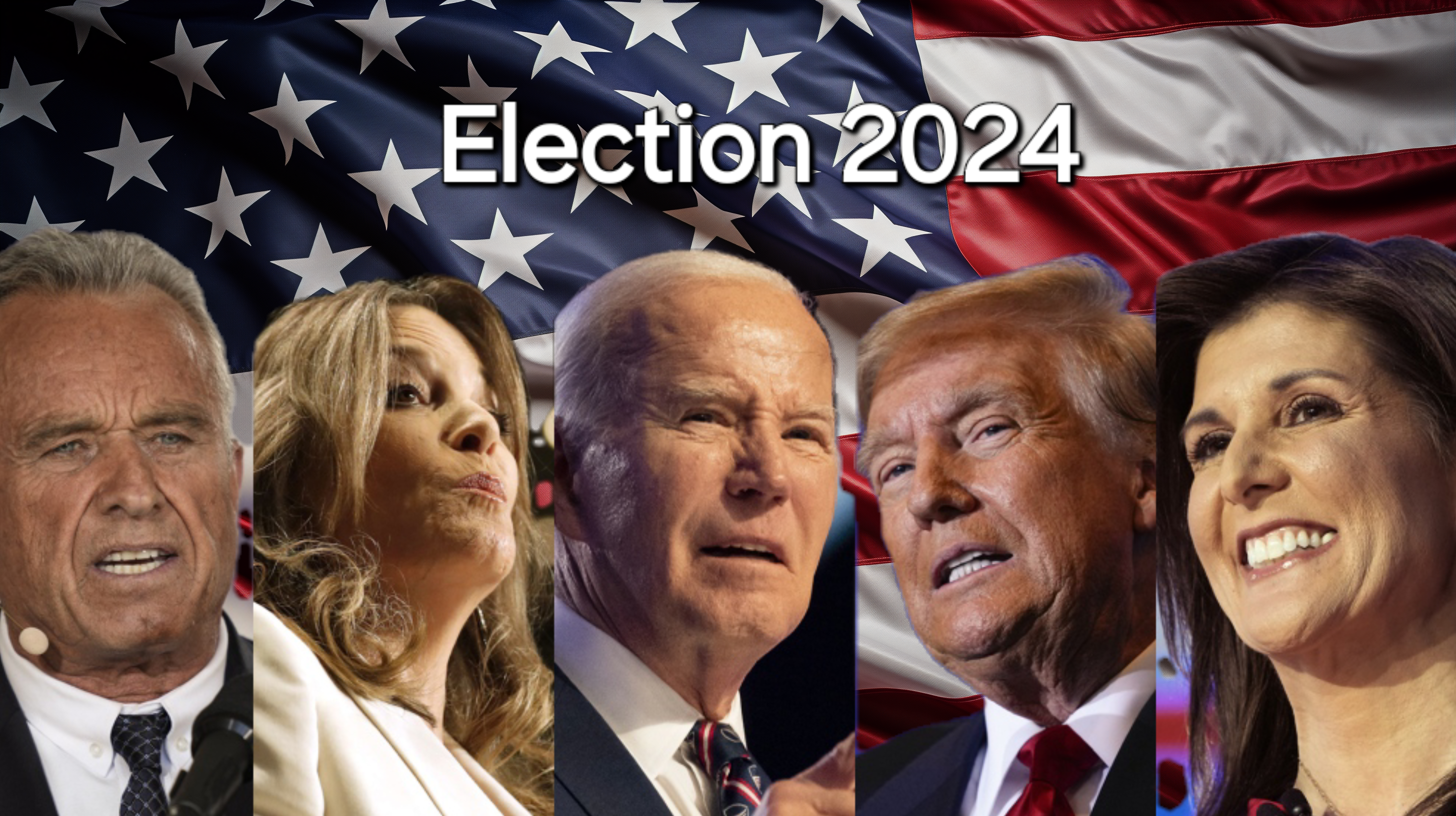As the United States gears up for the next presidential election, the nation finds itself at a pivotal crossroads. This election, like many before it, carries profound implications for the future of the country, both domestically and internationally. Here’s a look at what’s at stake and the key issues shaping the race.
The Candidates
As the campaign trail heats up, we see a diverse array of candidates vying for the highest office in the land. From seasoned politicians with decades of experience to newcomers promising fresh perspectives, the 2024 election promises to be a dynamic and contentious battle. The primary season is already showing signs of intense competition within both major parties, as candidates seek to distinguish themselves and their visions for America.
Democratic Candidates
Joe Biden: The incumbent president, Joe Biden, is seeking re-election. His campaign focuses on continuing his administration’s policies on healthcare, climate change, and social justice. According to recent polls, Biden remains the frontrunner among Democratic candidates, although he faces challenges within his party.
Marianne Williamson: An author and spiritual leader, Williamson is running on a platform advocating for deep systemic changes, including economic reform and environmental justice. She has garnered a small but passionate following.
Robert F. Kennedy Jr.: Known for his work as an environmental lawyer and vaccine skepticism, Kennedy is running on a platform that includes restoring civil liberties and addressing environmental concerns.
Republican Candidates
Donald Trump: The former president is running for re-election with a campaign emphasizing his America First policies, immigration control, and economic nationalism. Polls show Trump leading the Republican field, despite ongoing legal challenges.
Ron DeSantis: The Governor of Florida is positioning himself as a more disciplined alternative to Trump, focusing on conservative values, economic growth, and anti-woke policies. DeSantis is seen as Trump’s main rival, according to recent polls.
Nikki Haley: The former U.S. Ambassador to the United Nations and Governor of South Carolina, Haley is running on a platform of strong national defense, economic growth, and conservative social policies. Her polling numbers are currently lower but show potential for growth.
Key Issues
Economy and Jobs: One of the central issues of any presidential election is the economy. Voters will be looking for a candidate who can navigate the complexities of economic policy, address inflation, create jobs, and ensure sustainable growth. Issues such as income inequality, tax reform, and the minimum wage will be hot topics.
Healthcare: Healthcare remains a critical concern for many Americans. The debate over how to provide affordable, high-quality healthcare to all citizens is likely to feature prominently in the campaign. Candidates will need to present clear plans for addressing the costs of healthcare, insurance coverage, and the future of programs like Medicare and Medicaid.
Climate Change: As climate change continues to impact the planet, the need for substantial environmental policy has never been more urgent. Voters will be evaluating how each candidate plans to tackle issues such as renewable energy, carbon emissions, and environmental conservation.
Social Justice: Issues of race, gender, and social equity are at the forefront of national conversations. Policies on criminal justice reform, policing, voting rights will be critical factors for many voters.
Foreign Policy: The next president will also need to navigate complex international waters. From relations with China and Russia to involvement in global organizations and addressing international conflicts, foreign policy is a key area where candidates must demonstrate their capabilities and vision.
Technology and Innovation: The rapid pace of technological advancement presents both opportunities and challenges. Candidates will need to address issues related to data privacy, cybersecurity, and the regulation of tech giants, as well as promote innovation in fields such as AI and renewable energy.
Polling and Public Opinion
Polling data provides a snapshot of where the candidates stand and helps to identify trends and shifts in voter sentiment. As of the latest polls:
Joe Biden leads the Democratic primary with around 60% support, while Donald Trump leads the Republican primary with approximately 55% support.Ron DeSantis is polling at about 20% among Republicans, making him the second-strongest contender, followed by Nikki Haley at around 10%.Marianne Williamson and Robert F. Kennedy Jr. trail significantly in the Democratic race, each garnering less than 10% support.
The Role of Media and Public Opinion
In today’s digital age, the role of media and public opinion cannot be overstated. Social media platforms, news outlets, and grassroots movements will all play significant roles in shaping the narrative of the election. Candidates will need to be savvy in their use of media to communicate their messages and engage with voters.
Voter Participation
Finally, voter turnout will be a crucial factor in the outcome of the election. Efforts to encourage voter registration and participation, as well as debates over voting accessibility and security, will be key issues. The future of American democracy hinges on an engaged and informed electorate.
Conclusion
The upcoming U.S. presidential election is more than just a political contest; it’s a moment that will define the trajectory of the nation for years to come. As voters, it’s essential to stay informed, engage in the democratic process, and consider the long-term implications of the choices we make at the ballot box. The future of the country depends on it.






